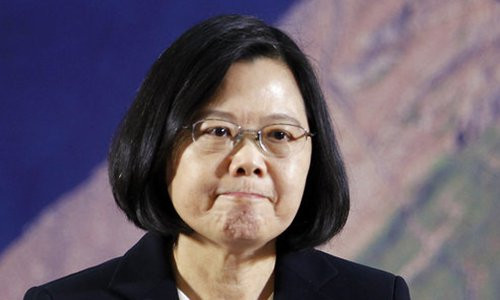
If Taiwan's president, Tsai Ing-wen, sees the U.S. House speaker this week, the Chinese government has threatened to retaliate and pleaded with the U.S. not to allow her to transit through the nation because it would be a "provocation."
Tsai leaves on Wednesday in the afternoon for a 10-day journey to Belize and Guatemala, two allies in Central America. Two stops are made during the journey: one in New York on the way in and one in Los Angeles on the way out.
Kevin McCarthy, the speaker, and Tsai are anticipated to meet in California, but there has been no official confirmation.
Tsai received a caution from China's Taiwan Affairs Office just hours before she was scheduled to depart Taipei.
China strongly opposes the planned stopover in the US by Taiwan’s President Tsai Ing-wen.
— Yasmina (@yasminalombaert) March 21, 2023
China’s ministry’s spokesperson Wang Wenbin told a press briefing in Beijing that the real intention of the transit is to propagate Taiwan independence.
"We again warn the Taiwan… pic.twitter.com/5UJOWKw711
"If she contacts U.S. House speaker McCarthy, it will be another provocation that seriously violates the one-China principle, harms China's sovereignty and territorial integrity, and destroys peace and stability in the Taiwan Strait," Zhu Fenglian, the office's spokesperson told a news conference.
"We firmly oppose this and will take measures to resolutely fight back."
The one-China principle is a domestic Chinese edict that makes clear the government's claim over Taiwan.
Tsai told the media just before she left on Wednesday that Taiwan would continue to engage with the rest of the world despite external pressure.
"Taiwan's determination to go to the world will only become stronger and stronger," she said. "We don't give in, and we don't provoke."
The ambassadors of Guatemala and Belize accompanied Tsai in her remarks at the Taoyuan airport, where she declared that Taiwan would stand up for the principles of freedom and democracy.
"When the international community needs Taiwan, Taiwan will contribute. And if Taiwan encounters difficulties, partners will also support Taiwan."
Taiwan's foreign minister, Joseph Wu tweeted a photo from inside the plane before take-off, reports The Guardian.
"I'm excited to accompany [Tsai] again on a trip to visit our allies Guatemala & Belize. Heard that it's very warm there, weather or otherwise."
Under the guise of "reunification," Beijing wants to conquer Taiwan.
Taiwan's democratically elected government and a large majority of its people reject the prospect of Chinese rule.
Even though the U.S. does not recognize Taiwan as a separate nation, it strongly backs its efforts to counter Beijing's growing use of armed force and diplomatic pressure.
The U.S. government described Tsai's stopover, which was her sixth since taking office in 2016, as "normal" and issued a warning to Beijing not to use it as a justification for aggressive behavior.
The People's Liberation Army of China surrounded Taiwan's main island with days of live-fire exercises in August of last year in reaction to a visit to Taipei by then-U.S. Speaker Nancy Pelosi, disrupting air and sea travel.
Republican Kevin McCarthy, Pelosi's replacement, had expressed interest in traveling to Taiwan, but observers have taken his meeting with Tsai as an effort to prevent a repetition of the Pelosi visit.
According to a U.S. source, a meeting between McCarthy and Tsai would not indicate any escalation on the part of the U.S.
"Members of Congress have met with the Taiwan president on nearly every transit" by Taiwanese leaders in the past, the official said.
© 2025 Latin Times. All rights reserved. Do not reproduce without permission.




